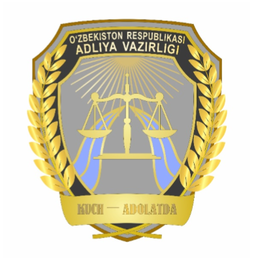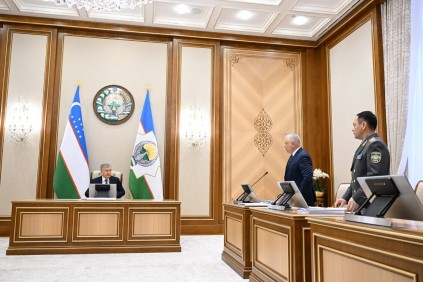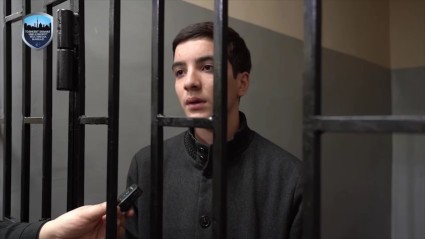The forced imposition of own religious views on others is prohibited in Uzbekistan, the Ministry of Justice said in a statement on Tuesday.
The statement published by the ministry entitled "Uzbek society has chosen a secular path of development" contains the article 31 of the Constitution, according to which everyone has the right to profess any religion or not to profess any.
“This means that everyone is independent whether to follow some faith or not. Everyone should recognize that all others have the right to freedom of conscience and belief,” the statment added.
The Ministry of Justice noted that in exercising their rights and freedoms, citizens should not damage the legitimate interests, rights and freedoms of others, the state and society.
“Observations show that there have been cases of attempts to turn moral and religious views into the subject of legal relations, as well as cases of information propaganda that contradict our national values, suppress and limit the personal rights of people,” the statement added.
According to the ministry, there are cases of subjective assessment of women's driving, propaganda of restricting their rights to free choice of activity, suspension of the activities of enterprises producing certain types of products, restricting the sale (use) of certain works of art that are world masterpieces, inciting distrust of other religious views, and hatred of persons who do not profess any of the religions.
In addition, they question the rules established by the laws of Uzbekistan based on the principle of secularism and other similar cases of propaganda by some individuals speaking on religious topics and carrying out their activities in this area.
“It is extremely unacceptable when a certain stratum of society evaluates the views, actions and lifestyle of others on the basis of only one dimension - the criteria of their own moral and religious views,” the Ministry of Justice stressed.
The Article 12 of the Universal Declaration of Human Rights clearly establishes the inadmissibility of arbitrary interference in a person's private life, and this norm is fully implemented in the national legislation of Uzbekistan, the report says. In particular, Article 25 of the Constitution of Uzbekistan guarantees freedom and personal inviolability, and Article 27 - the right to protection from interference with privacy.
The Ministry of Justice recognizes that in the minds of the population, especially young people, it is advisable to instill the rich historical and spiritual values вАЛвАЛof the society of Uzbekistan. But at the same time, he notes that the process of education should not be allowed to take place at the expense of human rights violations, especially interference in the private life of citizens.
People's behavior should be assessed not from the point of view of moral and religious views or measurements of individuals, but from the point of view of the requirements of the current legislation, the Ministry of Justice said.
“That is, if citizens comply with the law, they can choose their way of life freely and without interference, and this is one of the most important constitutional rights. In any case, it is a constitutional obligation to take into account the rights of citizens professing another religion or not professing any of the religions, and respecting their faith is a constitutional obligation.
The Ministry of Justice stressed that the forced imposition of religious views in the country is not allowed, and also recalled responsibility for any actions, propaganda aimed at forcibly implanting religious views.
“The people of Uzbekistan 30 years ago chose their own path of development - this is the desire to build a humane, democratic rule of law based on secularism. Nobody has the right to question this truth, to propagate fanatical ideas,” the ministry concluded.














